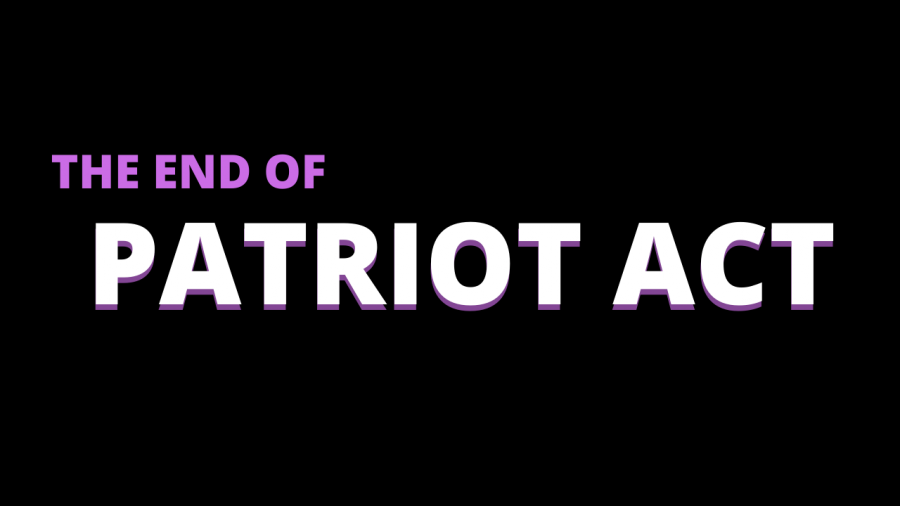The end of ‘Patriot Act’ and its consequences
Exploring the importance of Asian American representation and staying informed
September 12, 2020
After six seasons of “Patriot Act,” a Netflix original series, host Hasan Minhaj announced the ending of his talk show on August 18. Not only will the show’s viewers miss out on another season of Minhaj “bring[ing] an incisive and nuanced perspective to global news, politics and culture,” but others are also considering it a loss of representation for Netflix.
What a run. @patriotact has come to an end. I got to work with the best writers, producers, researchers, and animators in the game. My 2 babies were born and grew up with the show. TY to @Netflix and everyone who watched. Now it’s time to return these screens to Best Buy
pic.twitter.com/4s4TrsKWe6
— Hasan Minhaj (@hasanminhaj) August 18, 2020
“Patriot Act” was the first weekly U.S. talk show hosted by an Indian American for Netflix — a step towards addressing the inequity in minority representation on Netflix and beyond.
The topics addressed in the show, including the 2020 election and college debt, were relevant and relatable. While other shows, including “The Daily Show” with Trevor Noah, have similarly addressed several timely issues, Minhaj stood out by using his platform to bring light to a South Asian perspective. As Tan France from “Queer Eye” said, “[l]ook at what you do for a living. You’re representing brown people. You don’t need to try to be cool. You are cool.”
Ultimately, Minhaj touched on often stigmatized subjects that elicited discussion within the Asian community, including Asian anti-blackness, mental health and Indian politics, explicitly and implicitly pushing for Asian American viewers to reconsider their stances.
Even in his most recent episode titled “Why Doing Taxes Is So Hard,” Minhaj referred to the seemingly mundane topic of doing taxes and broke it down for viewers of all ages. Another episode reminds us that even if we claim we know the answer to “Is College Still Worth It?,” it’s still beneficial for us to consider another perspective.
While these discussions on their own are important to engage in, they are especially beneficial when supplemented by action. In 2016, only 43 percent of young Americans between the ages of 18 and 29 voted, despite 90% reporting an interest. With the upcoming election and as voter turnout continues to pose a problem, it’s important that we stay up to date with what’s going on around us. With that being said, without outside research, it is easy to side with Minhaj; while we shouldn’t limit our understanding of national and global events to only watching the “Patriot Act,” Minhaj, in every episode, took the first step for us, making controversial topics approachable and sparking an interest, specifically targeting younger viewers by strategically incorporating humor. Consequently, many are frustrated, starting petitions that have gained over 18K signatures. However, approximately 40 episodes are still on Netflix and our understanding of political, cultural and other such pertinent topics doesn’t have to stop now. If anything, we must continue to take initiative to form our own opinions, treating political talk shows as a means to supplement what we already know.
Podcasts, including one from theSkimm “breaks down important stories from the past week and adds context and clarity,” with over 300 episodes to date. Another option is subscribing to the New York Times’ assortment of services for important headlines delivered straight to your inbox.
Even as we find other means of informing ourselves, the loss of representation point still stands. As pop culture expert Sowmya Krishnamurthy, in an interview with NPR, said, “I would love to see that the next Hasan Minhaj [is] perhaps a young woman of color, a young South Asian woman.” Until then, we must continue supporting Asian Americans and more generally, a diverse set of voices to expand our worldview and accept multiple perspectives, especially as other communities and groups are not impacted by social, political and other issues in the same way we are. We can’t hold the cancellation of the next season of “Patriot Act” as an excuse.


















